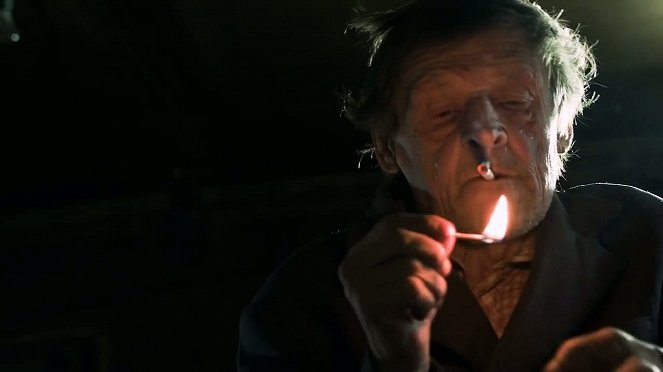Samenvattingen(1)
Verafgelegen, in de Russische wildernis vaart postbode Lyokha rond en bezorgt met zijn kleine motorboot de post. De inwoners van Kenozero Lake leven op een eiland gescheiden van de buitenwereld. Lyokha is het enige contact tussen het eiland en het vaste land en met zijn boot is hij de brug tussen de twee werelden. Maar wanneer de motor van zijn boot wordt gestolen en de vrouw van wie hij houdt voornemens is samen met haar zoontje Timur het eiland te verlaten, vangt een heel ander leven aan voor de postbode. Wat volgt is een reis over zelfontdekking, liefde en demonen uit het verleden. (Contact Film)
(meer)Recensie (2)
(50th KVIFF) This is exactly the kind of genre/non-genre that I don’t like, so the three stars are the equivalent of a much higher rating for other types of films. So, fine. White Nights is a poetic and also an almost documentary realistic film that slowly and non-violently – but also with some mysticism – follows the life of a Russian village and the mentality of its inhabitants. A life that remains the same in some places, but changes in others, leading to its conclusion. 65 %
()
The Postman's White Nights follow the cyclical and lonely existence of a man who is the only one who connects the inaccessible islands of the traditional village world. It gradually disappears, and with it the peculiar mythology, humor and Russian spleen, the cheerful mixture of difficult human destinies, streams of vodka and moments when, in the middle of the drunken blabbering of the character, they inadvertently touch the futility of being. Konchalovsky ironically connects the procedures of a reality show (fixed voyeur cameras placed in actors' houses) with moments that evoke the disturbing power of Andrei Tarkovsky's films through captivating work with image and ambient music of Eduard Nikolayevich, especially those moments when the camera image turns reality into a fleeting dream. The film thus creates a unique bridge between contemporary Russia, represented by the dehumanized set pieces of a city, rocket bases and non-sensual excerpts from entertaining television shows, and traditions - both film and folk. Konchalovsky remains admirably restrained. Although he uses fragments of classical art, muted by Verdi's Requiem or a quote from Shakespeare's The Tempest, he never slips into the shallow intellectual or, on the contrary, tabloid exploitation of ordinary people who open their privacy in front of the camera. The Postman's White Nights shows the peculiar simplicity that contemporary reality shows about country packages exploit with gusto, but they do so in a way that prevents the viewer from amused ridicule - because they inevitably find a piece of themselves in a bizarre cycle of aimless dialogues, daily routines and minor disasters. #kviff2015
()

